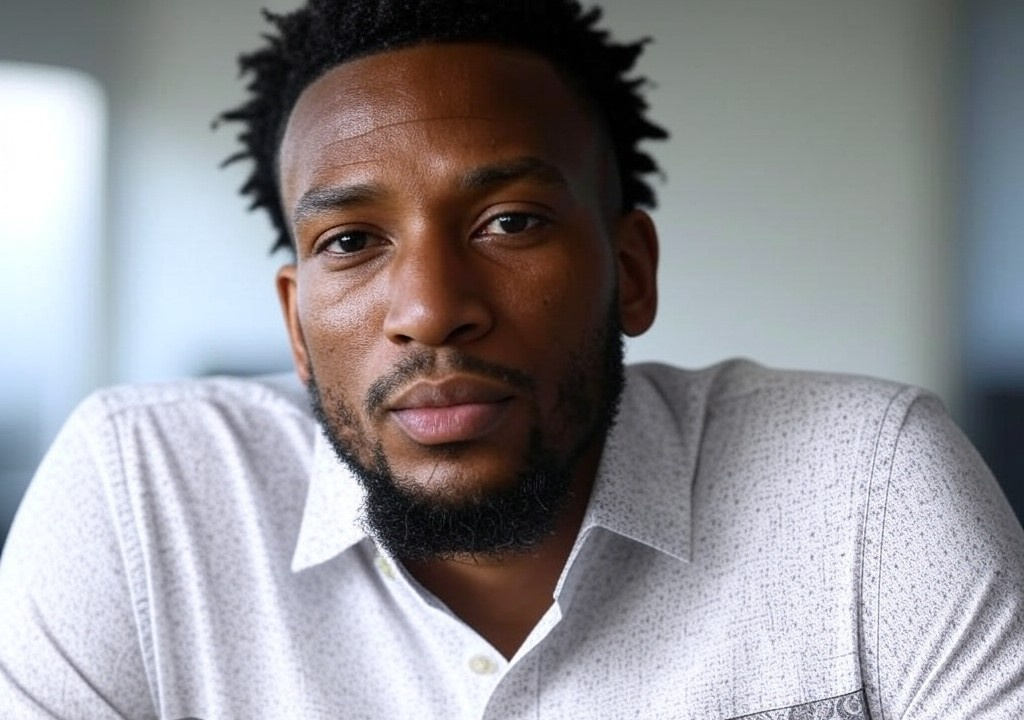From “I Don’t Belong” to “I Got This”: Conquering Impostor Syndrome in Relationships
If you’ve ever felt like a fraud in your own love story—like the romantic equivalent of sneaking into a VIP lounge with a fake wristband—you’re not alone. Impostor syndrome doesn’t just pop up in the workplace or school; it has a knack for crashing into relationships, too. Whether you question if you're “good enough” for your partner or doubt your ability to navigate the rollercoaster of intimacy, that nagging voice telling you you’re out of your depth can be loud. Too loud. Trust me, I’ve heard it before, and it sounded like it was on surround sound in Dolby Atmos.
But here’s the truth: nobody hands you a manual on being the “perfect” partner (spoiler alert—it doesn’t exist). Like learning to two-step at a jazz lounge, where you inevitably trip over your own feet and someone else’s, this thing called love is learned in motion. And while I don’t claim to be some all-knowing relationship Oracle of Delphi, I can tell you what worked for me when I stopped doubting myself and started stepping into confidence.
Let’s walk through it, head high and heart open.
Impostor Syndrome: The Uninvited Third Wheel
Before we dive into the fix, let’s unpack what this sneaky saboteur is. Impostor syndrome in relationships sounds like:
- “They could do better. Why are they settling for me?”
- “I thought I’d be better at this by now. Clearly, love’s not my thing.”
- “If they really get to know me, they’ll leave.”
Sound familiar? It’s the self-doubt mixtape that won’t stop playing in your head, even at the best of times. This mental mode hit peak volume for me during the early months of getting serious with my now-partner. The first time they mentioned my “thoughtfulness,” I panicked. I ran through a whole diagnostic list thinking, “Thoughtful? Me? Did they get that impression because I held the door open that one time? Oh no. Now I have to keep being this perfectly thoughtful person forever!”
For you, it might show up as unconsciously tailoring your personality to fit what you think someone else wants. Maybe you pretend to like karaoke even though it’s your actual nightmare scenario, or you agree to try vegan barbecue despite feeling personally attacked by tofu ribs. However it manifests, impostor syndrome festers in the gap between who you think you should be, and who you actually are.
The twist? That “gap” is often imaginary, and it’s time to bridge it.
Quieting the Doubt Monster: Steps Towards Security
1. Recognize You’re Playing a One-Person Game of Doubt Poker
Ever notice how you’re often your own toughest critic? You stack the deck against yourself but, plot twist, your partner isn’t in the same game. A few months into dating someone amazing—let’s call her Sabrina—I confessed my doubts. “Sometimes, I feel like I’m just... not enough for you,” I muttered over brunch one Sunday. Sabrina looked genuinely perplexed (mid-avocado toast, no less).
“Why?” she asked.
“Well... I’m still figuring out so many areas of my life,” I said, gesturing vaguely like I was pointing to some inner map of my personal progress.
“You know what’s funny?” she replied with a grin. “I admire how determined you are to keep growing. That’s one of the reasons I like you so much.”
Folks, I stared at my egg scramble in stunned silence. Here I was, hyper-focusing on all the ways I hadn’t “arrived,” while my partner was over here clapping for me like I’d just landed on the moon. Stop playing solitaire with your insecurities and start seeing yourself through the eyes of someone who values you.
2. Channel Your Inner Student
You don’t need a PhD in “Relationships 101” to be a good partner. You’ll make mistakes—it’s guaranteed—but it’s not about being flawless; it’s about being curious. Approaching relationships with a learner’s mindset changed everything for me. I started viewing challenges (whether it was “the great thermostat battle of 2019” or talking through a tough disagreement) as opportunities to understand both myself and my partner better.
Feeling unsure? Ask more questions. Lean into feedback without lashing out defensively. Below are reminders I keep taped to my mental walls:
- What are they really saying? Listening is oxygen in a relationship. Listen to their words, tone, and undercurrent.
- What’s my endgame? In arguments, it’s not about “winning.” It’s about finding understanding or a shared perspective.
- What can I learn from this? Every bump in the road is just another reason to fine-tune your driving.
3. Remember: Nobody’s Keeping Score
Okay, if Friends taught us anything, it’s that Ross was definitely keeping score in every relationship he ever had (and we all saw how that worked out for him!). Healthy relationships aren’t competitions, and they don’t have some cosmic scoreboard measuring who’s more “worthy.” It’s a team sport, not a tennis match where collaboration works against your wins.
I became such a better partner when I realized my self-doubt wasn’t just weighing me down—it was pulling us both down. Impostor syndrome? It’s like tying a cinder block to a paper boat. The way out? Start disagreeing with that voice in your head. Unsure where to begin? Try these on for size:
- “They chose me for a reason.”
- “I deserve this partnership as much as they do.”
- “We’re both a work in progress, and that’s okay.”
4. Laugh at Yourself (Seriously!)
Nothing bonds you to someone faster than shared humor, especially at your own expense. I’ve made plenty of rookie mistakes in relationships—like showing up to meet my partner’s parents dressed in an outfit I thought screamed “put-together” but instead whispered “accidentally trying to cosplay as a substitute teacher.” Instead of dwelling on the awkwardness, I called myself out: “Don’t mind me,” I told her dad, “I’m really just here to pitch you a pyramid scheme.” The ice was broken.
Laughing at our stumbles doesn’t negate the awkward moment’s existence, but it de-powers fear and shame. It also signals to your partner that you’re okay being imperfect. After all, they’re probably just thrilled to share this wild ride with a co-pilot who can chuckle through turbulence.
Step Into Expertise
What if I told you improving your relationships doesn’t mean transforming overnight into some all-knowing oracle of love? Expertise comes from experience. It’s a slow burn, like warming your hands over an open fire that starts as sparks. Over time, you’ll look back and realize those self-doubts were just stories you told yourself. And guess what? You can tell yourself new ones.
Here’s one I favor now: I’m growing every day as a partner, a person, and it’s more than enough.
Does it erase every nagging thought? Nope. But it drowns them out with a little jazz riff in the background, reminding me to relax, keep learning, and let joy mingle with the uncertainty. Headed to your expertise? You’ll get there—it’s already starting.
Closing Thoughts: You Belong at the Table
Think of relationships like one of those sprawling family reunion dinners: chaotic, messy, sometimes overly sentimental, but heartwarming all the same. You belong at the table, even if you don’t have the recipe memorized just yet. Your doubts? They’re just the seasoning—not the whole meal.
So scoot up a chair and dig in. Together, you’ll figure out how to co-write a recipe that works for you. And that’s the best kind of expertise of all: the kind you build, step by step, through love, laughter, and just the right dash of self-acceptance.




















